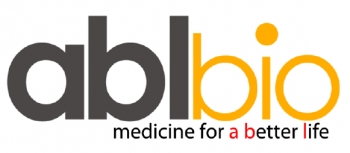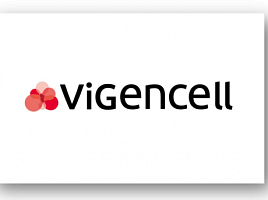기사본문
ABL BIO enters bispecific antibody targets solid tumor into PhII
입력 2017-09-12 09:32 수정 2017-09-12 20:37
바이오스펙테이터 Sungmin Kim 기자

ABL BIO, one of the leading biotech companies in Korea, announced it will initiate a phase I study of ABL001, an innovative version of bispecific antibody, in subjects with solid tumors, 18 months after the company’s founding. The Ministry of Food and Drug Safety approved this trial August 29, 2017.
ABL001 is a bispecific antibody targeting vascular endothelial growth factor (VEGF) and Delta-like ligand 4 (DLL4). This antibody inhibits tumor growth by VEGF-mediated tumor angiogenesis and DLL4/Notch-mediated tumor initiating cells. To date, ABL BIO has been jointly developing ABL001 in collaboration with the National OncoVenture.
A total of 42 patients with advanced solid cancers, unresponsive to standard chemotherapy (or lack of standard chemotherapy), will participate in the phase I study (phase 1a: 24, phase 1b: 18) to receive ABL001 in Samsung Medical Center. This trial is designed to determine safety, tolerance, and pharmacokinetics/pharmacodynamics of ABL001 (product name: NOV1501), while evaluating its effective dose levels and anti-tumor effects.
Lee Sang-hoon, CEO of ABL BIO, noted that “This marked the first milestone since the company was founded, and we are adjusting the dosing period of the first patient.” He added that “After completion of the phase I trial, we will expand the licensing possibility of ABL001 in a global arena.”
There are several global competitors of ABL001, such as OncoMed-Celgene’s OMP-305B83 (phase 1b), Abbvie’s DVD-IgG, Regeneron, and Medimmune. Earlier, ABL BIO revealed that ABL001 may generate more impressive efficacy in treating gastric cancer than other modalities, coupled with better production yield.
In addition to ABL-001, ABL BIO has various research resources such as bispecific cancer immunotherapy that targets PD-1 and cancer cells. With a mechanism of mobilizing core T that eliminates cancer cells, this immunotherapy is expected to emerge as a promising drug candidate.
Another biospecific pipeline is also under development to treat degenerative brain disease. ABL301 is indicated for Parkinson’s disease as a brain blood barrier (BBB)-penetrating bispecific antibody for targeting alpha-synuclein aggregates.
ABL BIO is actively partnered with local companies for joint collaboration designed to develop ABL201-203, antibody-drug conjugate (ADC) with LegoChem Biosciences and an innovative antibody with Dong-A ST in March this year. In an effort to strengthen its immunotherapy pipeline, ABL BIO will expand technical transfer opportunities in foreign countries including China, with closer strategic partnerships.
CEO Lee revealed that “We will initiate preclinical studies for both the double-targeted antibody against alpha-synuclein and ADC product next year.” Lee is hopeful that 2018 will mark several milestones for ABL BIO as it pushes forward in the field of immunotherapy.







